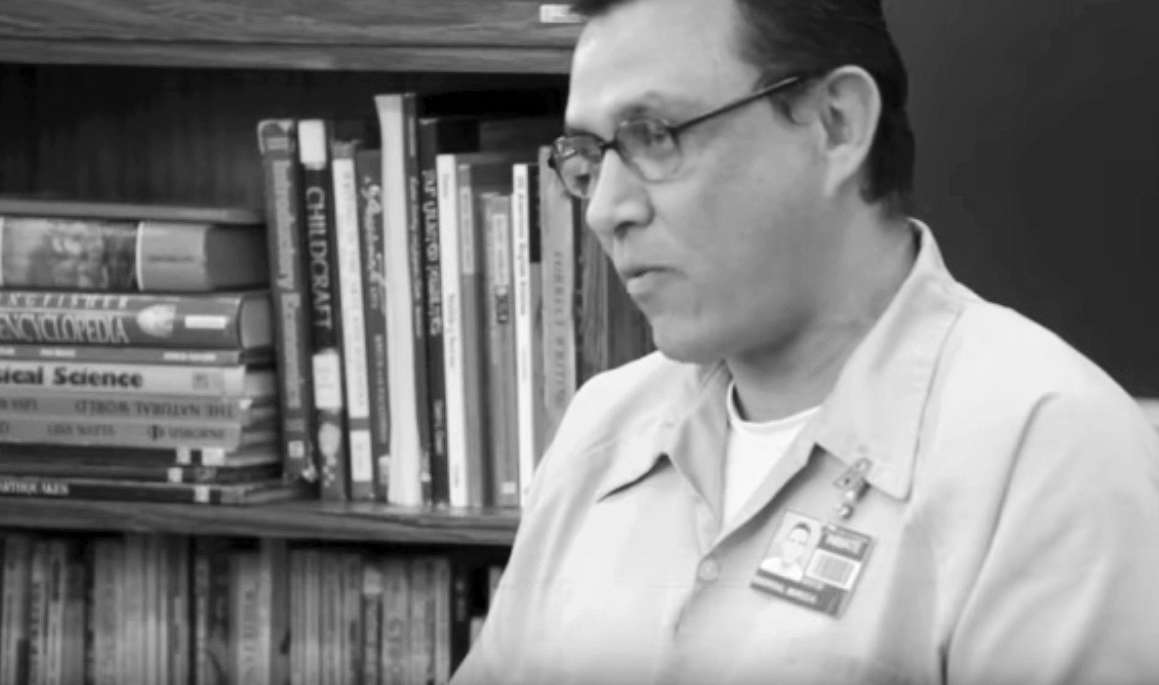By SUZANNE KOZIATEK
Staff writer
An innovative program to provide peer-to-peer literacy help in Illinois’ prisons has been phenomenally successful: results show 97 percent of inmates who were tutored by other inmates have advanced their reading skills, making them more employable after release and less likely to end up back in prison.
Now, the agency that trains the inmate tutors is seeking help to make an even bigger impact throughout the state.
Michael Schuette is director of Poverty Services, an agency of Catholic Charities of Southern Illinois. He says the program, called SOARING Inmates Helping Inmates, doesn’t just benefit the inmates themselves, but helps the larger society, and could even ease state budget problems.
“The Department of Corrections is the second largest line item in the state budget,” Schuette says. “This is a cost we can significantly reduce in the state, while also reducing the costs of recidivism (released inmates falling back into crime).”
The program is the end result of decades of attempts to solve literacy problems among the state’s inmates. Studies show that 70 percent of Illinois’ inmates have reading difficulties, which is just one more strike against them when they attempt to find jobs after being released.
Since the 1970s, groups have tried to go into prisons to teach inmates how to read – Schuette was actually among those volunteers. But he says they had limited success. “Maybe one out of five improved,” he says.
Other programs during the 1990s and early 2000s did better. But those programs were cut as a result of Illinois’ budget woes. And that led to increased recidivism.
Twelve years ago, Schuette says, his organization came up with a new concept: Enlisting other inmates as the tutors.
“We thought, if 70 percent of inmates are reading impaired, that means 30 percent can read. Why not teach the best of those 30 percent to be tutors?”
So the Inmates Helping Inmates program was born, starting first at Centralia Correctional Center in Southern Illinois. Professional educators – retired and part-time teachers and graduate teaching students seeking professional experience – go into the prison as volunteer literacy aides, training inmate tutors and helping to test students and measure advancement.
“We seek to have one volunteer literacy aide per correctional center,” Schuette says. “We try to have a minimum of five (inmate tutors) per correctional center – Centralia has had as many as 12.”
Each tutor in turn teaches about 18 inmates a week, for a total of about 36 hours. Tutors are paid $10 per week by the state as an incentive.
That peer-to-peer assistance makes a much greater impact than an outside volunteer does, Schuette says.
“If I go in, I might be a spy, an outsider,” he says. “With an inmate tutor, there’s trust. The student and the tutor understand each other’s situation.
Neither of them wants to end up back in prison.”
Inmates using the reading curriculum offered by the program can improve as much as five grade levels per year.
Schuette says the inmates’ new-found reading ability opens new worlds to them – including improving their faith life.
“They can read the Bible, they can sing along with the hymnal, they can be part of the community,” he says. “Once they start reading, they’re stunned at the world they’ve been missing – that’s why they advance so many grades so quickly.”
And the tutors get multiple benefits as well. Once they’re released, they can be hired as literacy tutors to work with other released inmates.
“It’s extremely rewarding for the inmate tutors,” he says. “They’re proud that they can help other inmates better than anybody else can. We never dreamed that inmates helping each other would be the best solution of all
A few years ago, Poverty Services partnered with Lutheran Social Services of Illinois to expand both agencies’ reach.
The Lutheran group was working in more correctional centers to help inmates re-enter society, but needed a literacy component. The newly merged program, SOARING Inmates Helping Inmates, is trying to expand to eventually operate in all of Illinois’ 26 correctional centers.
Schuette says the program has had strong support from the Illinois Department of Corrections and Senator Dick Durbin.
But it needs financial support as well. Schuette says SOARING needs to raise $10,000 in the Diocese of Belleville to pay for workbooks for inmates and operational costs. The plan is to hold an email raffle sometime in the early months of 2019.
Earlier this month, Bishop Edward K. Braxton sent a letter to parishes encouraging support of the program, calling it a “very important life-changing ministry in our Diocese.”
Schuette plans to contact each parish in the diocese to request their participation and support. He hopes to convince others that this investment in the future of an often-forgotten group of people is a worthy one.
“I know there are people who believe they’ve done wrong and should be punished,” he says. “But inmates are in a cycle they don’t understand and can’t get out of. If we can get past the mistake they made in the past and help them, they can become good employees or even employers once they’re out.”
Anyone interested in donating to the SOARING Inmates Helping Inmates program can contact Michael Schuette at 618-920-8448 or via email at pmschuette1949@charter.net.
Any donations to the program are tax deductible.
Editor’s note: A story in the Dec. 27, 2018 edition of The Messenger about an inmate literacy program included an incorrect contact email for Michael Schuette, director of Poverty Services. His correct email address is pmschuette1949@charter.net







